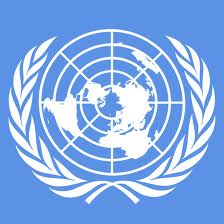Water experts are sceptical about whether UN’s Millennium Development Goals (MDG) will be fully met by 2015; unless the current pace is dramatic accelerated, particularly in sub-Saharan Africa.
The United Nations (UN) General Assembly met last week to address water, sanitation and electricity in terms of the UN’s post-2015 development agenda. 783 million people live without clean water, 2.5 billion don’t have adequate sanitation and 1.4 billion are without electricity. Achieving universal access to safe drinking water, basic sanitation and modern energy services is one of the greatest multifaceted development challenges confronting the world today.UN General Assembly President John Ashe says severe water stress and water scarcity in many countries across the globe is compounding this problem. Director of international programmes at the London-based WaterAid, Girish Menon, told IPS that there are 327 million sub-Saharan Africans without access to safe drinking water. He predictsthat, at current rates, it will take until at least 2030 for sub-Saharan Africa to meet the MDG water target.Clarissa Brocklehurst, water and sanitation specialist and former chief of water, sanitation and hygiene at the U.N. children’s agency UNICEF, says not enough progress has been made on sanitation. “[W]e are off-track to achieve the MDG target,” she says. Menon says at current rates, the target for global sanitation will be missed by eight percent –half a billion people.
“And perhaps most worryingly, what progress has been made in both water and sanitation is highly inequitable,” Brocklehurst told IPS. She says urban dwellers are far more likely to have water and sanitation than rural dwellers, and the rich are more likely to have received services than the poor. UN Deputy Secretary-General Jan Eliasson has been leading a call to action on sanitation. He says sanitation is one of the most lagging of the Millennium Development Goals targets.Eliasson believes the sustainable and equitable use of water resources requires innovative thinking, from the community level right up to transboundary agreements. “We must not let water become a source of conflict. Instead, we should see it as a driving force for cooperation and shared responsibility.”






